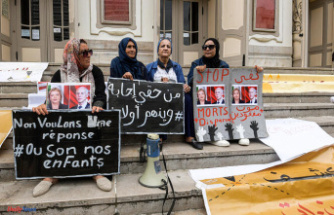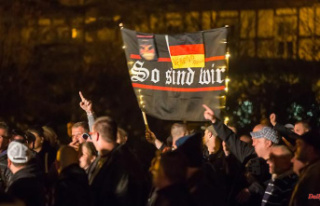DIW President Marcel Fratzscher is in favor of a drastic turnaround in traffic after the end of the 9-euro ticket. In the ZDF program "Markus Lanz" he calls for steps that lead to people driving less. This could also include a car toll.
The President of the German Institute for Economic Research, Marcel Fratzscher, suggested the introduction of a car toll. In the ZDF program "Markus Lanz" he said that after the end of the 9-euro ticket one would have to consider making driving more expensive. The aim is an effective traffic turnaround. To do this, more traffic must be shifted from road to rail.
Fratzscher said: "We have to get people to use public transport wherever they can, rather than using their cars." Instead of subsidizing local transport, the better way could be to make driving more expensive. Cars have a high cost to the environment. "In many ways, we subsidize fossil fuels in Germany - including when driving - with 65 billion euros every year."
Fratzscher also questioned the subsidization of diesel fuel. He also spoke out against preferential tax treatment for company cars, which means that the state loses 3 to 4 billion euros in tax revenue every year. Fratzscher: "We should price what is particularly harmful, and that includes driving a car. I would like the relative prices to reflect what is economically and climatically necessary."
The Bundestag had formally decided to introduce a car toll on January 1, 2016. However, it should not be collected until the system required for this is operational. However, the European Court of Justice overturned the project in 2019. Since then, the introduction of a toll has been on hold. However, the corresponding law is still valid, but would have to be adapted to the judgment of the ECJ.
At the same time, Fratzscher criticized the gas levy introduced by the federal government. "Here, profits are privatized, but losses are socialized," says the economist. Uniper is currently making extraordinary losses in the gas business for which consumers are liable. However, the company can keep extraordinary profits.
In principle, the state should have financed the gas surcharge, says Fratzscher. In general, he criticized: "I lack a clear strategy in the federal government."
On the other hand, the right thing to do was to introduce sanctions against Russia, which the EU imposed after the country's illegal attack on Ukraine. However, it will take a long time before they have an effect. For example, Russia purchases many products from China that may even have been delivered from the EU. Despite this, Russia is paying an enormous economic price for the war. "We will already see a deep recession in Russia this year, and that will continue," said Fratzscher.
For Germany, the sanctions could even bring an economic advantage, "but we have to have staying power," said the DIW President. In five to ten years, the sanctions and the associated high energy prices could pay off, "because that's the wake-up call; we realize that we have to switch to renewable energies much faster."
(This article was first published on Wednesday, August 31, 2022.)












